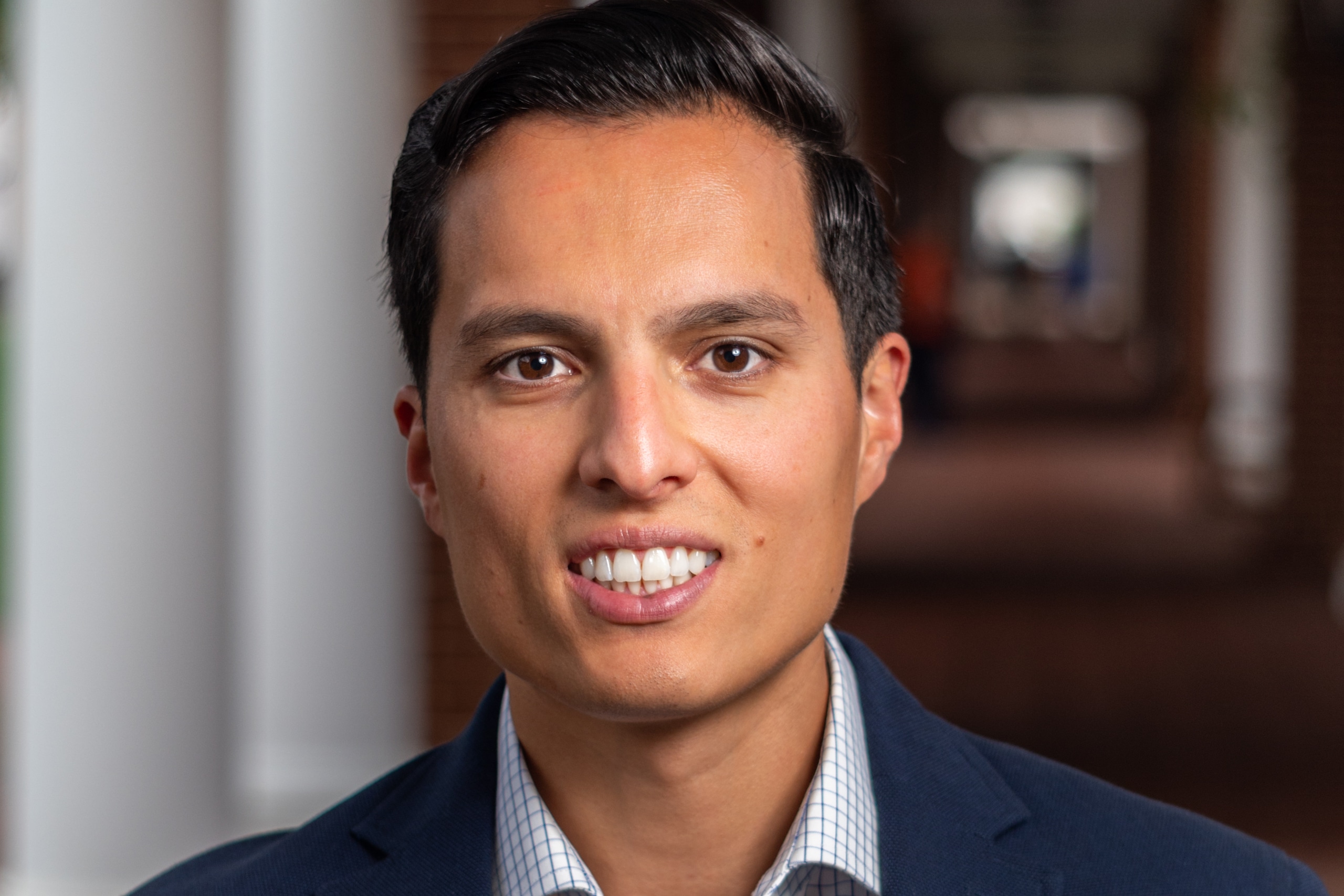


Cameron De La Pena considers himself fortunate for his time in the U.S. Armed Forces, when as a Coast Guard Officer, he collaborated with diverse groups of colleagues representing a wide range of places, purposes, and skills.
“I experienced a variety of working environments, including serving on a ship with people from different backgrounds and working with other countries’ militaries, with all levels of seniority from the Coast Guard and other military and government agencies,” he says.
Because of the fluid nature of military assignments, he was required to stay flexible and be adaptable to whatever new responsibilities would come his way. “Every one to two years, I was expected to learn a new job. These experiences have helped me in both my professional life and within the context of the MSBA, since they helped me learn to be a self-starter, navigate new situations, and work well with others.”
Those positive traits reinforced by his years in the Coast Guard certainly supported the veteran’s choice to apply to the UVA graduate degree program, the Master of Science in Business Analytics (MSBA). Offered in partnership by the Darden School of Business and the McIntire School of Commerce, the project-based learning stresses teamwork and emphasizes the importance of using analytics to present and communicate business decisions to others.
In addition to meeting twice weekly online, the 12-month MSBA program convenes for 10 weekend residencies in the the Rosslyn neighborhood of Arlington, VA, and on University Grounds in Charlottesville, giving participants successive days to collaborate on projects. That face-to-face element stood out as an early selling point to De La Pena.
“I was really interested in a program that had an in-person component. I knew I was going to be in the Washington, DC-NoVA area, and having grown up in Virginia, I was familiar with UVA, so the residencies made it really appealing,” he says.
The MSBA’s innovative curriculum and the University’s strong alumni community both drew De La Pena to the program, as they represented the type of coursework and cohort experience he was seeking.
“I was working as a Data Analyst at the time so was naturally attracted to the technical sides of the program, areas such as machine learning, programming, and contemporary data technologies, but I also liked the idea of tying it all together to solve business problems—versus what may have been available to me through self-taught or open-source projects,” he explains. “I also wanted to leverage the program to meet like-minded people in the area and through UVA’s network.”
As the coursework introduced new technological fluencies to De La Pena, it also built upon his knowledge and previously developed skill set in areas such as business intelligence tools and programming. As he progressed through the program, he could recognize that his abilities grew as he further developed his ability to better communicate through data.
But there was even more he would draw on from his courses.
“While I was most excited about machine learning and predictive analytics, the part of the curriculum that has really served me well is customer analytics and hypothesis-driven design,” he says, noting that his roles since being in the MSBA program have largely supported product analytics for an online identity verification software company (ID.me) and the online banking platform for a large financial institution (M&T Bank). “Using data within the context of software product development was not something I had done before the program, but I pull from the experiences I gained during the program during my work now.”
Considering the many highlights to emerge from his graduate education, De La Pena found that the program ultimately brought about a transformative approach to his perspective. He says that difference turned out to be what he valued most about what he learned.
“Professionally, my favorite thing about the program was that it really changed the way I view problems I encounter,” he says. “The exposure to contemporary analytics tools and applications showed me what is possible, and it gave me knowledge, sometimes conceptual and sometimes technical, to understand what it would take to get there.” On a personal level, he says that the interactions he had with his peers proved important—no matter the venue.
“Spending time socially with my cohort mates, whether in Rosslyn, on Zoom, or at Sloney’s [the former pub at the Inn at Darden] was also an awesome experience.”
He says that while the MSBA program was incredible for him, he suggests that anyone curious about it do their homework first to learn how it may meet their needs.
“I would recommend shopping around as much as possible, looking at the format, curriculum—maybe even required textbooks if available—researching the faculty, and talking to alumni or anyone who went through a similar program,” he says, explaining that he was fortunate to have friends and colleagues who had gone through similar experiences and helped him to arrive at his decision to pursue the UVA graduate program. “I had five years of Coast Guard experience and three years in an analytics role going into the program, so it really aligned with my interests and helped me professionally; I know classmates in similar positions have benefited in a similar fashion. That being said, there are others who pivoted to a new career or position after the program,” he says.
One critically important outcome of the program is a preparedness to meet the future across sectors; the MSBA readies its graduates to provide immediate value to the organizations where they work. That advantage comes as the result of cultivating a fluency conveying insights and informing strategic decisions by objectively analyzing information.
“Data literacy is becoming a must-have in all jobs and industries,” confirms De La Pena.
Learn more about the MSBA program and get updates on upcoming events, application deadlines and program news.